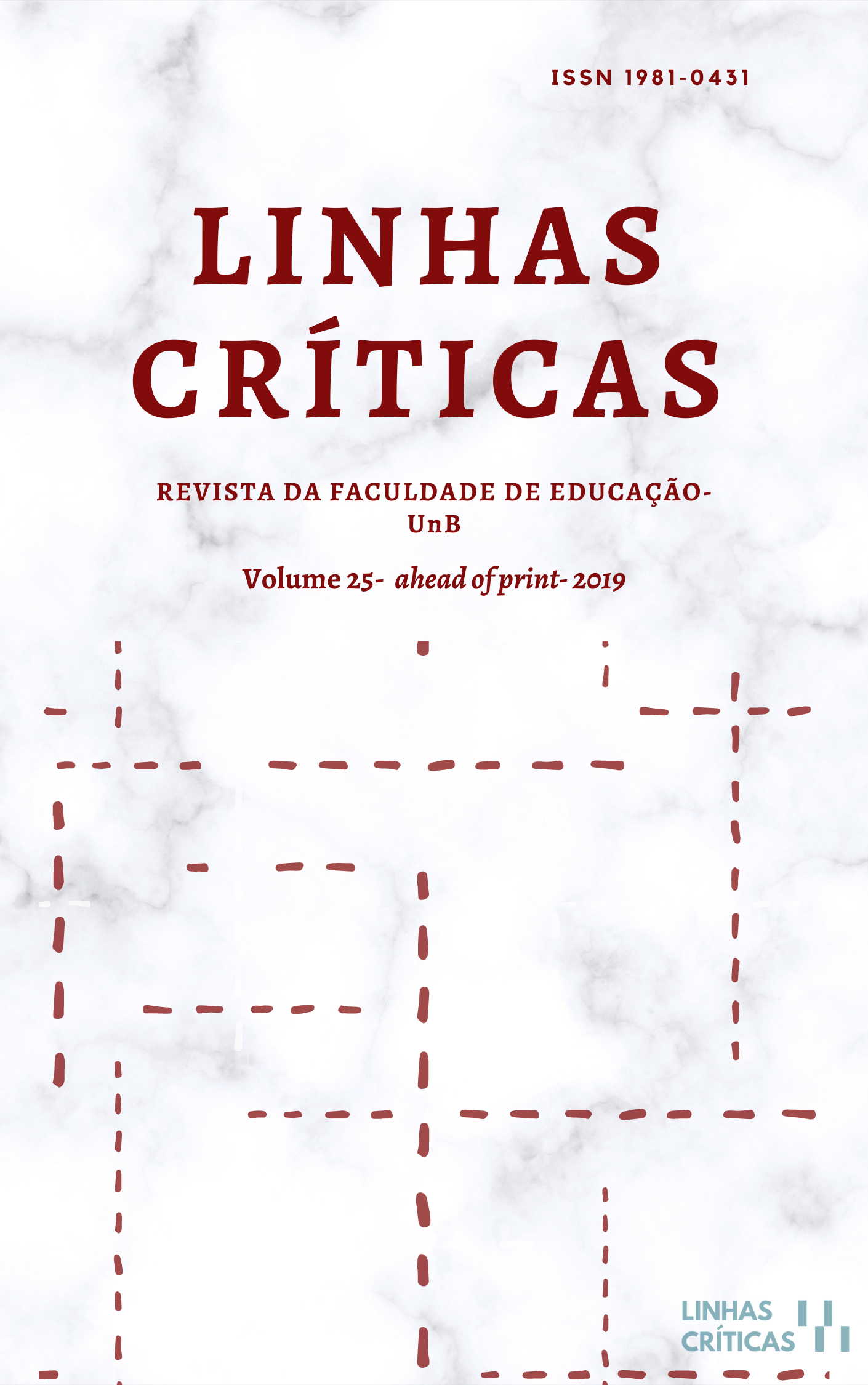Alfabetização científica e a construção de concepções na contexto de formação de professores
DOI:
https://doi.org/10.26512/lc.v25.2019.21588Keywords:
Scientific literacy, Teacher training, Continuing education, Science teachingAbstract
This article investigates the conceptions of scientific literacy of elementary school science teachers from 6th until 9th of Brazilian elementary school at a city in São Paulo state in the context of continuous formation. The data were collected on the activity of training through a questionnaire with open questions where the teachers’ conceptions were formally collected before and after the execution of activities. As a result, some teachers changed their conception related to the scientific literacy regarding the need of scientific methods, allowing us to the point out the need for further research that address this kind of approach as well as continuing teacher training.
Downloads
References
Araujo, E. S. N. N., Caluzi, J. J., & Caldeira, A. M. A. (2006). Divulgação e cultura científica. In E.S.N.N. Araujo, J. J. Caluzi, & A. M. A. Caldeira (org.). Divulgação científica e ensino de ciência: estudos e experiências (pp 15-34). São Paulo. Escrituras.
Bauer, H. H. (1992). Scientific Literacy and the Myth of the Scientific Method. Univ. of Illinois Press, Urbana and Chicago.
Bybee, R. W. (1997). Achieving scientific literacy: from purposes to practices. Portmounth: Heineman.
Cachapuz, A. et al. (2011). A necessária renovação do ensino das ciências. São Paulo: Cortez.
Chassot, A. (2002). Alfabetização científica: uma possibilidade para a inclusão social. III Cumbre Iberoamericana de Rectores de Universidades Públicas. Revista Brasileira de Educação, 21, 157-158.
Fourez, G. (2003). Crise no Ensino de Ciências. Investigações em Ensino de Ciências, 8(2), 109-123.
Gatti, B. A., & Garcia, W. E. (org.). (2011). textos selecionados de Bernadete A. Gatti. Belo HOrizonte: Autêntica Editora.
Gil Perez, D., Montoro, I. F., Carrascosa, J., Cachapuz, A., & Praia, J. (2001). Para uma imagem não deformada do trabalho científico. Revista Ciência & Educação, 7(2): 125 - 153.
Imbernón, F. (2010). Formação continuada de professores. Porto Alegre: Artmed.
Lankshear, C., & Knobel, M. (2008). Pesquisa Pedagógica: do projeto à implementação. Tradução de Magda França Lopes. Porto Alegre: Artmed.
Lemke, J. (2006). Investigar para el futuro de la educación científica: nuevas formas de aprender, nuevas formas de vivir. Revista Enseñanza de Las Ciencias, 24 (1), 5 -12.
Moraes, R. (2003). Uma tempestade de luz: a compreensão possibilitada pela análise textual discursiva. Ciência & Educação, 9(2), 191-211.
Moraes, R., & Galiazzi, M. C. (2006). Análise textual discursiva: processo reconstrutivo de múltiplas faces. Ciência & Educação, 12(1), 117-128.
National Research Council. (1996). National Science Education Standards. Washington D.C.: National Academy Press.
Penick, J. E. (1998). Ensinando "alfabetização científica". Educar em Revista, 14, 91113.
Pozo, J. I., & Crespo, M. A. G. (2009). A aprendizagem e o ensino de ciências: do conhecimento cotidiano ao conhecimento científico. Porto Alegre: Artmed.
Roden, J., & Ward, H. (2010). O que é ciência? In H. Ward et al. (orgs.) Ensino de Ciências (pp 13 - 33). Porto Alegre: Artmed.
Sasseron, L. H. (2015). Alfabetização Científica, Ensino por Investigação e Argumentação: Relações entre Ciências da Natureza e Escola. Revista Ensaio, 17 (especial), 49-67.
Sasseron, L. H., & Carvalho, A. M. P. (2008). Almejando a Alfabetização Científica no ensino fundamental: a proposição e a procura de indicadores do processo. Investigações em Ensino de Ciências, 13(3), 333-352.
Shamos, M. H. (1995). The myth of scientific literacy. New Brunswick: Rutgers University Press.
Vogt, C., & Polino, C. (2003). Percepção pública de ciência: resultados da pesquisa na Argentina, Brasil, Espanha e Uruguai. Campinas: Editora Unicamp/Fapesp.
Published
How to Cite
Issue
Section
License
Copyright (c) 2019 Revista Linhas Críticas

This work is licensed under a Creative Commons Attribution 4.0 International License.
Authors who publish in this journal agree to the following terms:
-Authors maintains the copyright and grants the journal the right of first publication, the work being simultaneously licensed under the Creative Commons Attribution License which allows the sharing of the work with recognition of the authorship of the work and initial publication in this journal.
- Authors are authorized to enter into additional contracts separately, for non-exclusive distribution of the version of the work published in this journal (eg publish in institutional repository or as a book chapter), with acknowledgment of authorship and initial publication in this journal.
-Authorers are allowed and encouraged to publish and distribute their work online (eg in institutional repositories or on their personal page) at any point before or during the editorial process, as this can generate productive changes as well as increase the impact and the citation of published work (See The Effect of Free Access).



